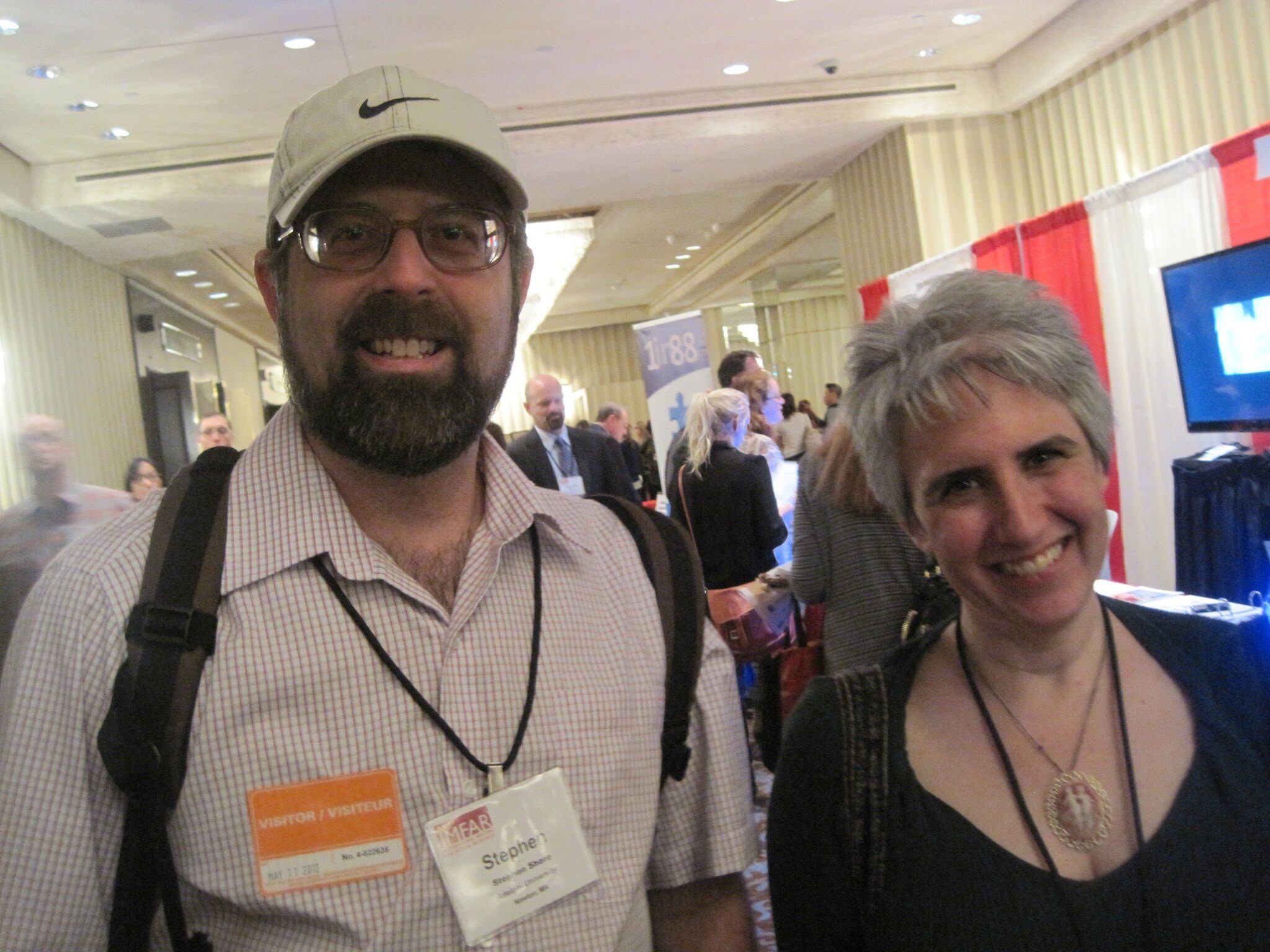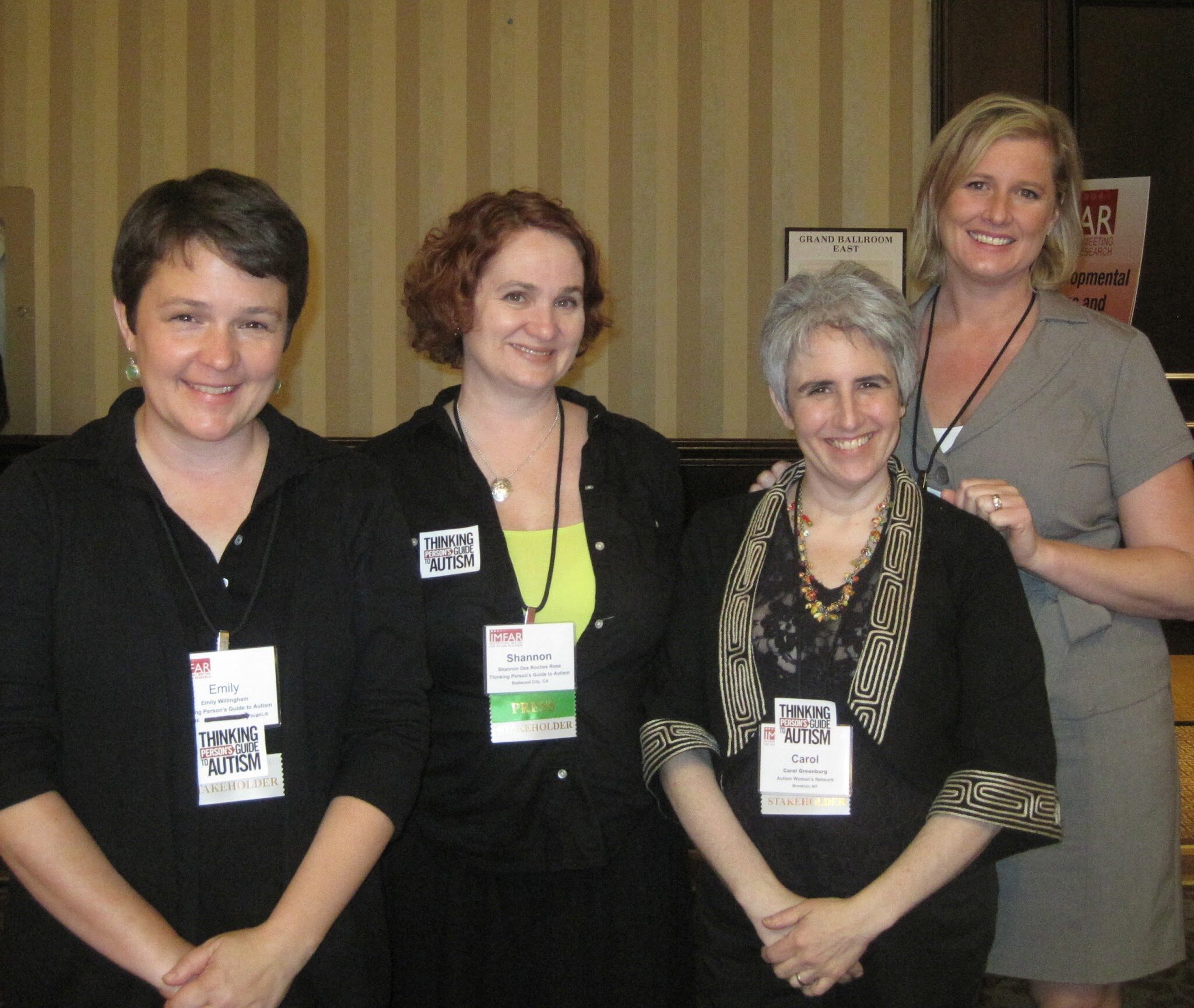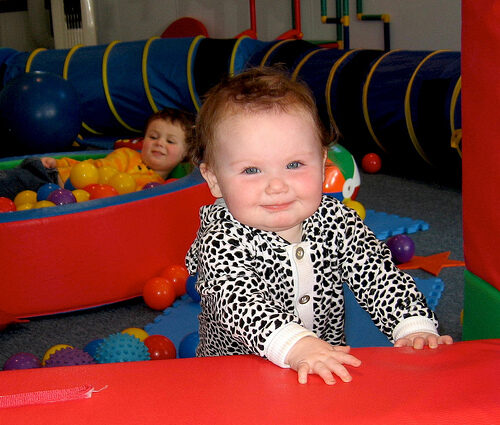Carol Greenburg www.thinkingautismguide.com The author and Stephen Shore Evidence-based information and spirited civil debate abounded at IMFAR 2012. Though I thought we all could have benefited from more power outlets in the breakout rooms, I had some terrific conversations with other attendees — some autistic, some not. I found the formal presentations a bit uneven (I confess the eye-roll Shannon Des Roches Rosa so kindly and repeatedly brought to TPGA readers’ attention happened during several panels). I found a few presentations maddening. One example was Karen Solomon’s talk on Autism and Friendship that seemed to boil down to a not-so-revolutionary point that autistic people are interested in making friends. Is the mythology about our anti-social nature really so deep-rooted, even among people who have met autistics, that it was necessary for attendees to fly in from all over the world for scientific verification? At times like these I skulked in…
Tag: research
Emily Willingham www.ThinkingAutismGuide.com Caveat: All findings discussed here were presented at a conference and have not undergone peer review. —- What is the use of animal models? I understand the use of animal models like mice to figure out how gene changes affect outcomes in a whole animal, rather than, say, in cells in a dish. I’ve used them myself. Knocking out a gene of interest in a mouse strain, applying an environmental exposure of interest, observing the behavior of the mouse involved — these tactics can be revealing, sometimes. Say a mouse with a nonfunctioning partner in a gene pair shows a specific behavior — like vocalizing less to its mother — and maybe we can interpret that in human terms as being inhibited social communication and assume the gene in question is involved. The idea is that observing changes linked to the absence or overabundance of a particular…
Shannon Des Roches Rosa www.ThinkingAutismGuide.com TPGA editors at IMFAR 2012 We had a great time at IMFAR; it was important that TPGA be present, given our mission to support evidence-based autism information. I wish more autistic people and people whose lives include autism — personally or professionally — would or could attend. We’ll keep posting summaries and insights for those of you who couldn’t go. Here are my general observations and takeaways. IMFAR 2012 ‘s goal was to present the newest research conducted over last year, with a particular effort to include presenters from outside autism science whose research overlaps with or has implications for autism. This may be why the science often, though not always, seemed a bit softer than 2011. With the result that in some panels, I would just … stop typing after a while, because it was clear the material would not be terribly useful to…
Can’t make IMFAR? Don’t worry, four of our TPGA editors are covering the International Meeting for Autism Research in Toronto, Canada, from Wednesday May 16 through Saturday May 19. Reporting starts with today ‘s 11 AM ET press conference (assuming Shannon & Jen make their flight, which has been delayed, eep — stand by). Panel & presentation coverage will be posted here www.thinkingautismguide.com, via Twitter, and of course on the TPGA Facebook page. Follow us on Twitter at @thinkingautism, @jennyalice, @aspieadvocate, @ejwillingham and @shannonrosa. And if you’re at IMFAR, you can also buy our books at the Autism Science Foundation table — 100% of sales benefit the ASF. If you see one of us, say hi! Science devotees out!
Dr. Sally Ozonoff is the Principal Investigator of the Infant Sibling Study Team at the UC Davis MIND Institute. We talked with Dr. Ozonoff about her autism research work, how the Infant Sibling Study operates, and what the study does and does not mean. This interview took place before yesterday’s CDC announcement about autism prevalence rates, but Dr. Ozonoff’s team had some similar findings within their own study, especially regarding earlier/more intense scrutiny leading to earlier and increased rates of autism diagnoses. How did you become involved with the Infant Sibling study? Is it in line with your previous areas of research? I have always been interested in diagnostic issues within the autism spectrum. I began my work in the autism field researching individuals with Asperger syndrome, trying to understand if and how they differed from individuals with autism. This was back in the early 1990s, when Asperger syndrome had…
Dr. L. Scahill, Yale University School of Medicine imfar.confex.com/imfar/2011/webprogram/Paper9789.html The following is a modified transcription of Dr. Scahill’s talk. Any glaring omissions or errors are my own. INSAR members can listen to Dr. Scahill’s talk in its entirety via its abstract page. -SR Fears, phobias, and worries; Toward better measurement of anxiety in ASD (Autism Spectrum Disorders) Dr. Scahill is very interested in identifying compounds that can treat target problems in people with autism and Tourette’s syndrome and the like. But how do we get to measure the targets that we think are important? We’ve seen in many posters [at IMFAR] that anxiety is common and adds to despair and disability in children with autism, but we need to find a way to measure it. This is an inspection of how we might go about that. Disclosures: Dr. Scahill has consulted with companies who have paid attention to autism and…
C. M. Schumann, UC Davis MIND Institute The following is a modified transcription of Ms Schumann’s talk. Any glaring omissions or errors are my own. INSAR members can listen to Ms Schumann’s talk in its entirety via the abstract page. -SR The amygdala is enlarged in children with autism, and this has been a consistent finding, in several studies. By 2.5 years of age, the amygdala is enlarged in children with autism by about six percent. Longitudinal studies show that amygdala enlargement continues to increase — by four years of age, there is a nine percent enlargement, compared to controls. What’s interesting is that the total brain volume is larger in children with autism in this age range, but that volume is not necessarily rapidly growing during this time — it’s staying fairly consistent, and not necessarily growing faster as the amygdala is. The growth pattern doesn’t occur in all…
IMFAR 2011 Keynote: The Developmental Neurobiology of Autism: The First Steps and the World Ahead Eric Courchesne, UCSD Autism Center of Excellence Abstract: imfar.confex.com/imfar/2011/webprogram/Paper9749.html The following is a modified transcript of Dr. Courchesne’s talk. I have not included all references to slides he presented, and I have left out some of the researchers he thanked and technical terms he cited. Emphases in bold are mine. Any additional omissions or errors are my own. INSAR members can listen to Dr. Courchesne’s talk in its entirety via the abstract page. -SR —- IMFAR introduction: Eric Courchesne is a leader on brain structure and abnormalities in autism, and has been pursuing research into autism before most IMFAR attendees “knew what autism was.” Dr. Courchesne had polio as a child, which left him unable to walk or stand. Medical intervention gave him the ability to walk without braces, and allowed him to eventually become…
Shannon Des Roches Rosa www.thinkingautismguide.com As an autism parent, I have a deep interest in seeing autism research proceed toward understanding and results with as few roadblocks or distractions as possible. So, for me, one of the most notable elements of IMFAR 2011 was seeing the Autism Science Foundation and Autism Speaks working alongside each other toward common goals, in the Autism Science Foundation’s tradition of “Funding Outstanding Science.” Anyone who has read my personal blog for more than a month or two knows I have been openly critical of Autism Speaks’ actions. I believe they have made some questionable decisions in how they approach and portray autism — but then so have I. If I’m going to give myself permission to evolve, I can’t very well fault them for past choices when their present direction includes wide-ranging funding of promising science, and listening to the community by broadening their…
S. Begeer VU University, Amsterdam Autism is a “man’s disorder” But what about the “Horse Girl” and the “Rain Women”? Some studies reports that females with autism Show more cognitive impairments Have worse social and communicative functioning Have a higher rate of intellectual disability: Increased self-destructive behavior, more dementia But other studies have shown that core autism symptoms do not vary by sex: No increase in psychiatric comorbidity Core symptoms of autism are relatively equal What are factors in the identification of females with autism? Parental expectations may be involved (higher social expectations) Clinicians expectations may be involved as well There is a risk of delayed or missed diagnoses in females Early identification is crucial From the abstract: imfar.confex.com/imfar/2011/webprogram/Paper8847.html Survey data were collected in the Netherlands from 2275 individuals with ASD. Timing and procedure of diagnosis were compared for males and females with autism, Asperger’s syndrome and PDDNOS. Results: Among…




